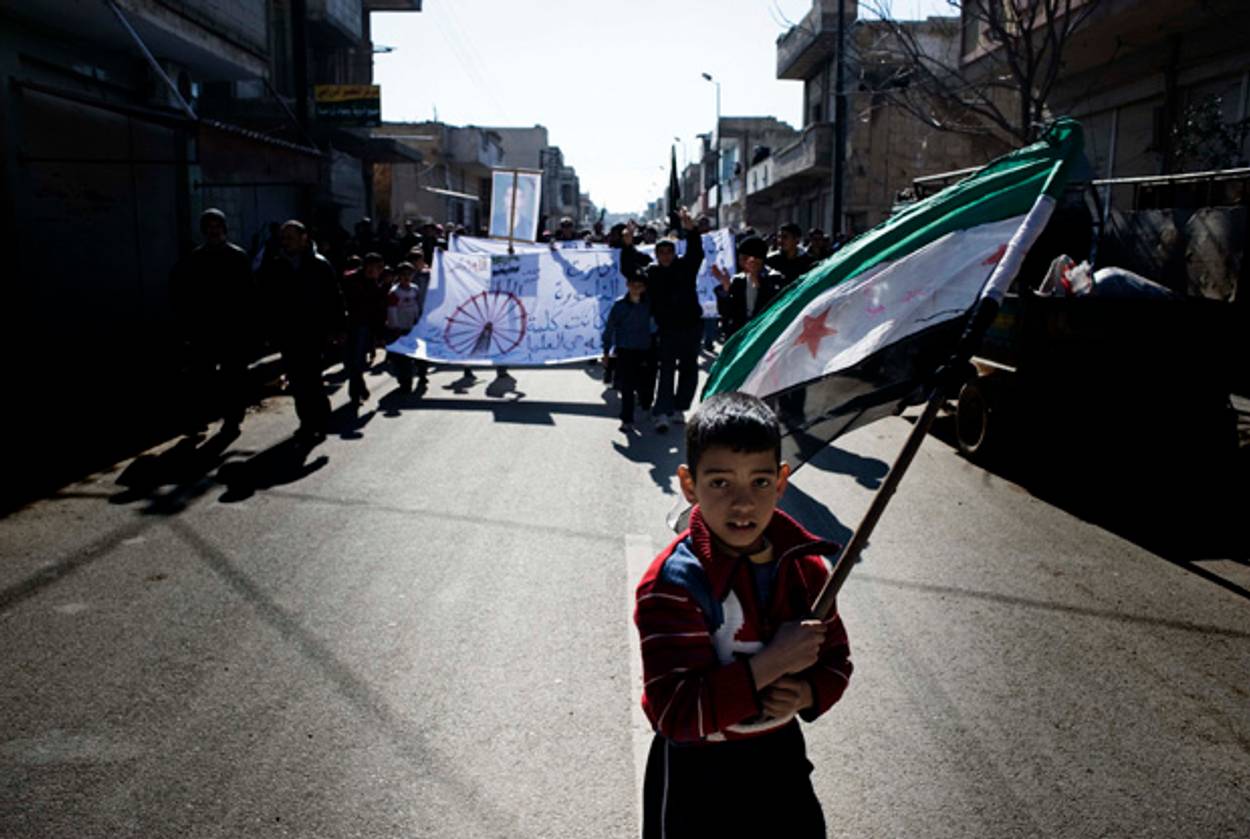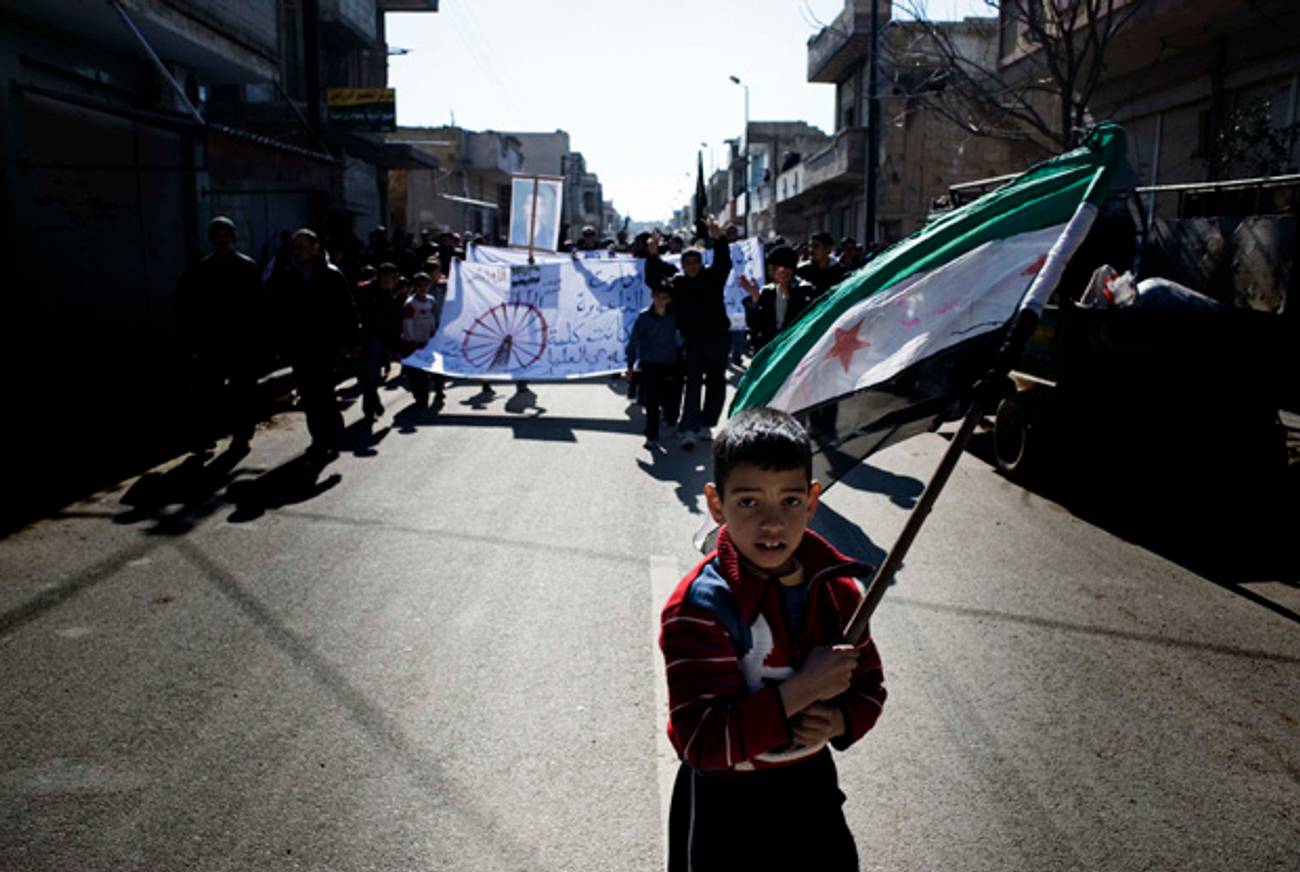Vetoes Embolden Syrian Regime
Civil war is next as regional actors jockey for position




What’s the bigger news related to Syria this weekend? Of course, it was the failure of the U.N. Security Council to take action after Russia and China vetoed a U.S.- and Europe-backed resolution, based on an Arab League plan, that would have called for regime change (while not authorizing outside military force). But before we get to that, conscience compels that we note the upwards of 200 Syrians killed in President Assad’s shelling of the restive city of Homs—an attack whose comparison, by President Obama, to Assad’s father’s massacre of tens of thousands 30 years ago overstated the amount of dead but if anything understated the sheer brazenness of attacking rebellious civilians as the world is debating whether to tell you to stop. And why shouldn’t Assad have behaved this way? In a rare double-veto, Russia and China told him he could. The death-count is now believed to be somewhere in the mid-5,000s, if not higher.
The vetoes brought the 15-member Security Council’s votes to 13 for, two against. Russia’s foreign minister insisted his country was motivated not to protect Assad but to uphold the essence of the Security Council, which “by definition does not engage in domestic affairs of member states.” Thomas Friedman reports that Russia comes by that motive honestly, but out of selfishness: “There is a strong domestic dimension to Russian policy toward Syria,” he quotes a Russian expert. “If we allow the U.N. and the U.S. to put pressure on a regime—that is somewhat like ours—to cede power to the opposition, what kind of precedent could that create?”
The administration was firm in its condemnation of the regime—“Thirty years after his father massacred tens of thousands of innocent Syrian men, women, and children in Hama, Bashar al-Assad has demonstrated a similar disdain for human life and dignity,” said Obama—and of Russia and China: “A couple of members of this council remain steadfast in their willingness to sell out the Syrian people and shield a craven tyrant,” noted U.N. Ambassador Susan Rice. But that is, for now, all talk. What’s next?
Not direct outside intervention. This is not another Libya. More likely, the situation will turn into something more closely resembling civil war, with several outside groups—including Saudi Arabia and Qatar, who would love to pull Syria, currently ruled by Shiite Alawaites, into the Sunni camp, and also Turkey, which fears for regional stability and would like to project power more—funding and arming the opposition. Crucially, the United States will be implicitly approving of this. After all, from a geopolitical perspective this concerns Iran and its ability to go through Damascus to threaten U.S. allies Israel, Egypt, and Turkey; the tinderbox known as Lebanon; and even the precarious, U.S.-backed government of Iraq. The United States won’t be arming the Syrian rebels, much less providing them air cover, but it will be looking the other way or winking while other parties do so.
It would be something if the Syria situation brought countries like Saudi Arabia, Egypt, and Turkey closer to the United States and even Israel. As I noted last week, realpolitik considerations led Israel to be among the first to openly hope for Assad’s downfall; the Jewish state has as much if not more interest in seeing Damascus pried away from Tehran’s grip as the other countries. Israeli Vice President Moshe Ya’alon observed that the fall of the Assad regime would lead to “developments … some of which could be positive as far as Israel is concerned, like a fissure in the Tehran-Damascus-Beirut-Hamas axis of evil.” (Indeed, accounts are that Hamas has already pulled away.) But don’t bet on the Syrian campfire leading to a Kumbaya moment.
And most of all, don’t expect Kumbaya in Syria. Assad is, as they say, not going down without a fight. On the contrary: As dissidence spreads even to regime strongholds like Aleppo and Damascus, and as the opposition begins to get better arms and more experience, signs are that the regime’s crackdown will likewise grow in intensity. It has Russia’s and China’s protection—why shouldn’t it feel like it can do what it wants?
At Least 200 Reported Killed in Syrian City of Homs [WP]
Russia, China Veto U.N. Action on Syria … and the Blame Game Begins [FP Turtle Bay]
Russia: Sort of, but Not Really [NYT]
Solution on Syria Remains Elusive for White House [NYT]
Syrian Unrest After a Failure of Diplomacy [NYT]
Marc Tracy is a staff writer at The New Republic, and was previously a staff writer at Tablet. He tweets @marcatracy.